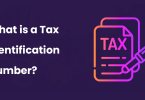Business Banking: A Step-by-Step Guide
Starting or managing a business involves numerous decisions, and one significant step in making your venture official is opening a business bank account. Whether you’re a new entrepreneur or reevaluating your banking options, understanding the process of how to open a business bank account is crucial. This comprehensive guide will walk you through the steps, documents required, and factors to consider, ensuring a smooth voyage into the world of business banking.

How to Open a Business Bank Account
1. Gather Your Documents:
Collect essential documents such as your government-issued ID (driver’s license or passport), Social Security Number, business licenses, business registration, and any relevant business formation documents.
2. Consider Your Needs:
Evaluate your business needs to determine the features required in your business bank account. For instance, if you don’t regularly accept credit card payments, you may not need a merchant services account.
3. Consider Your Wants:
Identify your priorities, whether it’s earning a good interest rate on savings, avoiding fees, or other specific preferences. This will guide your search for the right bank.
4. Comparison Shop for Banks:
Create a list of banks and compare their offerings, including minimum balance requirements, integration with accounting programs, potential business loans or credit cards, and other relevant factors.
5. Investigate Your Top Choice:
Examine the fees and policies of your preferred bank in detail. Understand all terms associated with the business account to avoid any surprises later.
6. Apply for a Business Bank Account:
Depending on the bank, apply online, in person, or over the phone. Submit the required documents and any additional details requested by the bank.
7. Make an Opening Deposit:
If approved, make an initial deposit into your new business account using your existing business funds.
8. Close Your Old Business Bank Account:
If you had a previous business bank account, inform the bank and close the account to avoid additional fees and potential complications.
What You Need to Open a Business Bank Account
Personal Information:
Provide personal details such as your name, date of birth, citizenship status, Social Security Number, address, phone number, and a copy of your government-issued ID.
Business Information and Documents:
Furnish business-related documents, including business name and DBA names, business licenses, registration, formation documents (articles of organization for LLCs), operating agreements, and ownership agreements.
Employer Identification Number (EIN):
Obtain an EIN from the IRS, serving as a business’s unique identifier for tax-related matters.
Bank Minimum Deposit:
Be aware of any minimum deposit requirements set by the bank. Ensure you have the necessary funds available to initiate the account.
Types of Business Bank Accounts
1. Business Checking Account:
Essential for daily transactions, including purchases and receiving payments.
2. Business Savings Account:
Provides a space to save long-term funds, earn interest, and plan for periodic expenses.
3. Merchant Account:
Enables businesses to accept credit card payments. Consider alternatives like payment processing companies depending on your business needs.
Best Business Bank Accounts
| Bank Account | Best For | APY | Minimum Balance |
|---|---|---|---|
| Chase Business Complete Checking | Earning Rewards | 0.00% | $2,000 to earn new account bonus |
| Axos Bank Basic Business Checking | Online Banking | 0.00% | $0 |
| U.S. Bank Silver Business Checking | Brick-and-Mortar Banking | 0.00% | $0 |
| LendingClub Tailored Checking | Interest-Bearing Checking | 1.50% on balances up to $100,000 | $0 |
Factors to Consider When Opening a Business Bank Account
1. Branch Access:
Consider the importance of local branch access if you handle cash frequently.
2. Fees and Minimum Balances:
Be mindful of fees and minimum balance requirements to maximize your financial resources.
3. Customer Service:
Determine your preference for hands-on or remote customer service based on your business requirements.
4. Benefits and Rewards:
Explore additional perks and rewards offered by banks, especially if linked to business credit cards.
5. ATM Access:
Assess the availability of in-network ATMs, especially if you travel frequently.
opening a business bank account is a crucial step in establishing your business’s financial foundation. By understanding the required documents, evaluating your business needs, and comparing bank options, you can make informed decisions that align with your goals. As you navigate the waters of business banking, may this guide serve as your compass, guiding you towards a secure and prosperous financial journey for your entrepreneurial endeavors.






